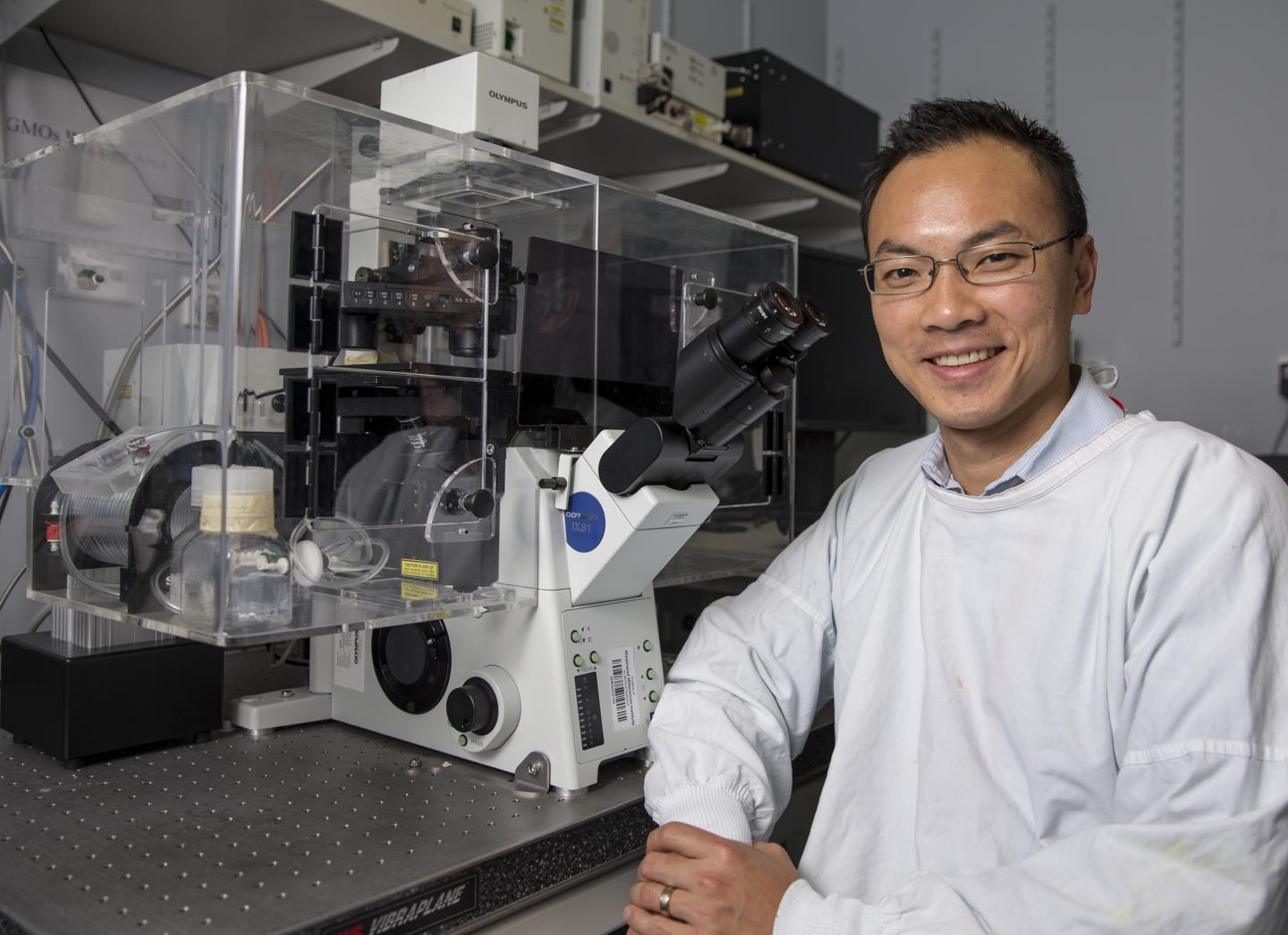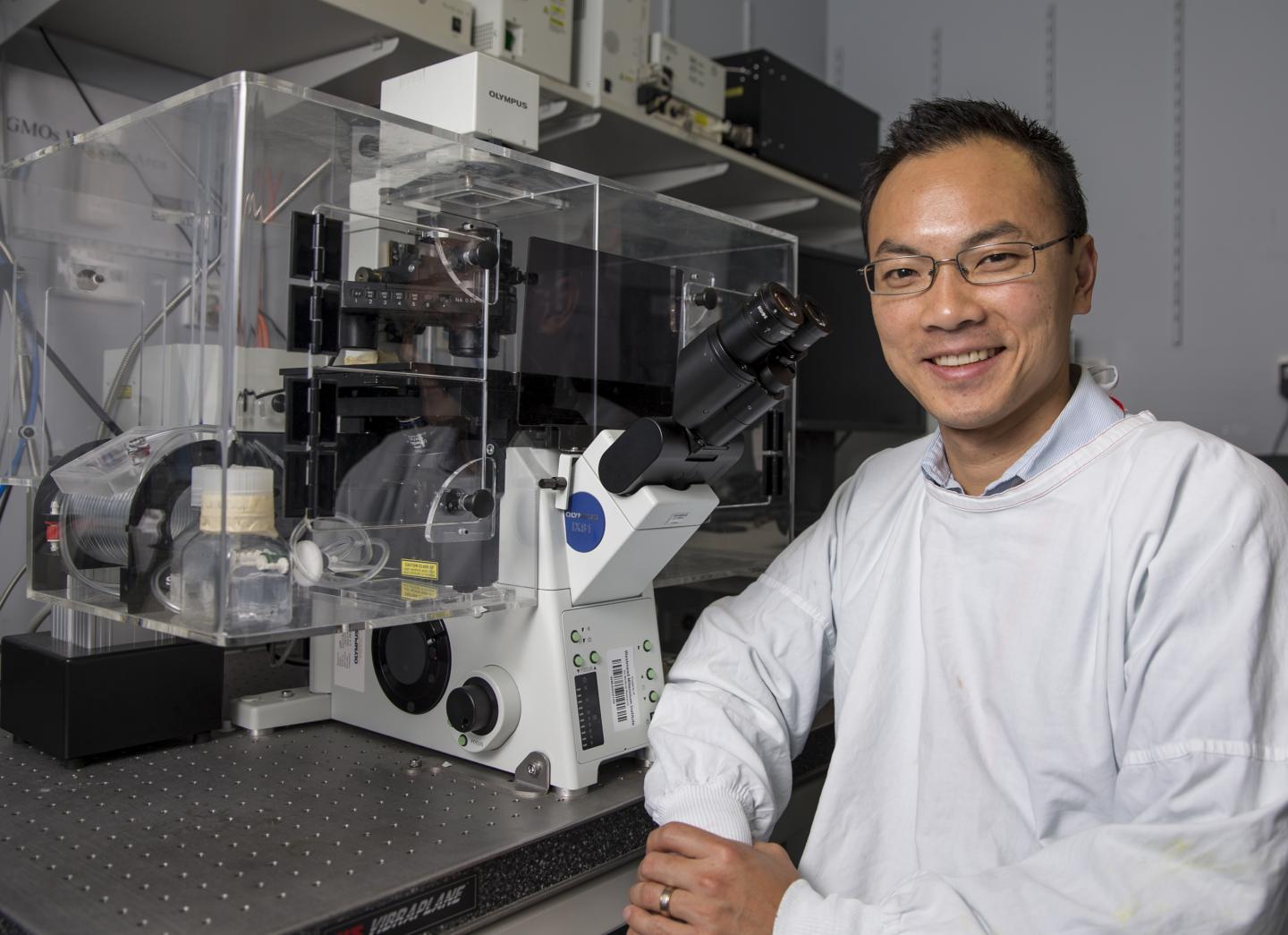
Credit: Westmead Institute
New research has shown how vitamin D may help protect heart tissue and prevent heart failure after a heart attack, potentially offering a low-cost addition to existing treatments for heart failure.
The team at the Westmead Institute for Medical Research found that vitamin D prevents excessive scarring and thickening of heart tissue following a heart attack, which may help reduce the risk of heart failure.
Researchers used mouse models to investigate the impact of 1,25D, a form of vitamin D that interacts with hormones, on the cells that form scar tissue after a heart attack. These cells are called cardiac colony-forming unit fibroblasts (cCFU-Fs).
Lead researcher Associate Professor James Chong said that vitamin D was known to help protect against heart failure, but its interaction with cCFU-Fs was not well established.
"The benefits of vitamin D are becoming increasingly known, but we still don't fully understand how mechanistically it can help with heart disease management. We wanted to know more about how vitamin D protects the heart after a heart attack," Associate Professor Chong explained.
Heart attacks occur when blood supply to the heart is blocked, leading to tissue damage. This triggers an inflammatory response where the cCFU-Fs replace the damaged tissue with collagen-based scar tissue.
"This is a problem because scarring of heart tissue can reduce the heart's ability to pump blood effectively, which can lead to heart failure," Associate Professor Chong said.
"Our research shows that vitamin D actually blocks the cCFU-Fs from forming scar tissue. By blocking cCFU-Fs, vitamin D may play an important role in lowering the risk of heart failure after a heart attack."
Heart failure is a life-threatening condition affecting an estimated 23 million people worldwide. Associate Professor Chong said that new treatments are necessary to reduce the global burden of heart failure.
"Cardiovascular diseases, including heart attacks and heart failure, are the leading cause of death worldwide," Associate Professor Chong said.
"To change this, we need to research heart conditions from every possible angle. This study is the first to demonstrate the role of 1,25D in regulating cardiac progenitor cells, and the findings are encouraging.
"With further study, vitamin D could prove to be an exciting, low-cost addition to current treatments, and we hope to progress these finding into clinical trials for humans," Associate Professor Chong concluded.
###
The paper is available online at Heart Lung and Circulation: http://www.heartlungcirc.org/article/S1443-9506(18)30037-4/fulltext
Media Contact
Alison Grinyer
[email protected]
61-286-273-024
@TheWestmead
http://www.westmeadinstitute.org.au/
Original Source
https://www.westmeadinstitute.org.au/news-and-events/2018/new-research-vitamin-d-may-help-prevent-heart-fa http://dx.doi.org/10.1016/j.hlc.2018.01.006





